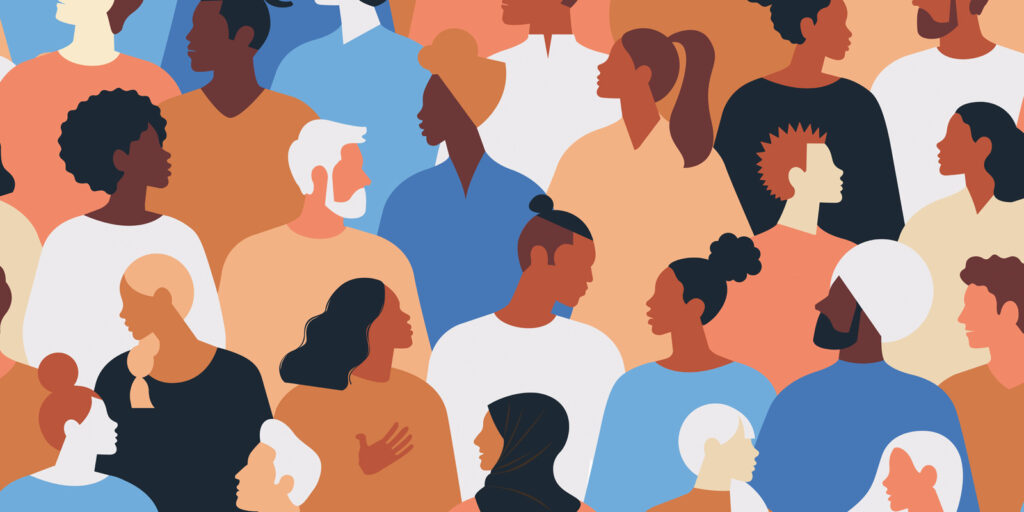International development has traditionally been dominated by ‘experts’ in the global North telling ‘poor people’ in the global South how their lives could be improved.
But the idea that development initiatives can be developed in one place, usually by people with power and privilege, and then implemented in another place, seems entirely inappropriate – not to say ineffective.
As a reaction to this mainstream development approach, IDS advocates for participation – enabling all people to engage in society and the decisions that impact their lives.
Using the knowledge, perspectives and priorities of those sidelined and marginalised by dominant modes of power and privilege can enable us to see and think differently, and develop new approaches to development challenges.

This work has been led by many experts at IDS over the years including John Gaventa, Andrea Cornwall, Patta Scott-Villiers, Peter Taylor but particularly Robert Chambers, who first started publishing on the topic in the 1970s and whose work forms the focus on our new IDS Bulletin: Power, Poverty, and Knowledge – Reflecting on 50 Years of Learning with Robert Chambers.
Current thinking is led by the Participation, Inclusion and Social Change cluster which is led by Joanna Howard with researchers including Danny Burns, Jackie Shaw, Marina Apgar, Mary Wickenden and others.
Research impact
Over the last few decades, IDS has worked on countless projects that have used participatory methods and practices, with the ultimate goal of bringing sustainable change to communities. Recent examples have included:
- Gleaning global lessons from the margins through participatory methods
Participatory research and inquiry is all about ‘putting the people who are experiencing the problems at the heart of finding the solutions’. As interest in participatory methods has surged, IDS produced a highly acclaimed and comprehensive handbook aimed at social science researchers across many disciplines. - Views from ‘below’ on how citizens interact with authority
In conflict-affected parts of Mozambique, Myanmar and Pakistan, researchers worked with marginalised households to document experiences of how they expressed grievances and sought accountability. The research, part of the Action for Empowerment and Accountability (A4EA) programme, revealed significant mistrust in, and fear of authorities among people living in conflict-affected areas. - Theorising the pathways of participatory interventions
This recent seminar celebrated our new partnership with Fundación Paraguaya (the developers of the Poverty Stoplight) and discussed how we develop understandings of participatory processes to work to generate change through evaluation research. - Strengthening learning and changing behaviour for better rural sanitation
In support of a national sanitation campaign in India, researchers were embedded in villages to gain insights which then fed into national policy-making.
Participatory approaches: Where we are going now
IDS continues to use participatory methods across a range of diverse research projects, with the common theme being that all voices are being heard to create a more equitable and sustainable world, where people everywhere can live their lives free from poverty and injustice. Current projects include:
- The Sanitation Learning Hub is a participatory programme aimed at facilitating timely and actionable learning and research around sanitation. Working in countries including Bangladesh, India and Nigeria, the programme has looked at issues from hygiene, climate change, gender and behaviour change.
- Child Labour: Action-Research-Innovation in South and South-Eastern Asia (CLARISSA). This is an action research project, which focuses on the key drivers of the worst form of child labour, in order to give children more options to avoid exploitative work. In Nepal, CLARISSA’s focus is the adult entertainment sector in several neighbourhoods in the Kathmandu valley, and in Bangladesh the leather supply chain in the Hazaribagh and Hemaytpur neighbourhoods in Dhaka. Central to the programme design are 17 participatory processes in each country: 15 participatory action research (PAR) groups, a children’s research group and a children’s advocacy group. In addition, in Bangladesh, an innovative social protection intervention will test universal and unconditional provision of cash together with family-oriented case work and community development facilitation in one slum neighbourhood in Hazaribagh, Dhaka reaching 1,800 households.
- Sustaining Power: Women’s Struggles against contemporary backlash in South Asia’ (SuPWR) looks at when, how, and why do women’s power struggles succeed in retaining power and sustaining their gains against backlash? This five-year project aims to respond to this question in Bangladesh, India, Nepal and Pakistan. The programme uses research methods in tracing the struggles, nature and trajectory of each movement to counter backlash – through oral history methods, reflective and participatory techniques, qualitative interviews and archival research.
- Practical Guides for Participatory Methods. These four guides give practical tips on the following subjects: Body mapping; Time Sequencing; Mapping and Power Analysis; Rivers of Life. Written by IDS researchers Pauline Oosterhoff and Jo Howard, these methods help to access and communicate personal experiences, facilitate group dialogue and improve your own learning.
Learning about participation
Our world-class postgraduate degrees and professional development programmes enable individuals and organisations to build the skills and knowledge needed for more equitable and sustainable development globally:
- MA in Power, Participation and Social Change
On this course you’ll learn to articulate your understandings of power and participation. You’ll have the opportunity to connect what you learn to what interests you most in the social change arena. This MA is for you if you’re an aspiring or experienced development practitioner, social activist or professional with some background in social change action through work volunteering or activism. - Participatory Monitoring and Evaluation for Learning
Develop your skills to more effectively design and improve monitoring and evaluation systems supporting participatory and adaptive practice.
